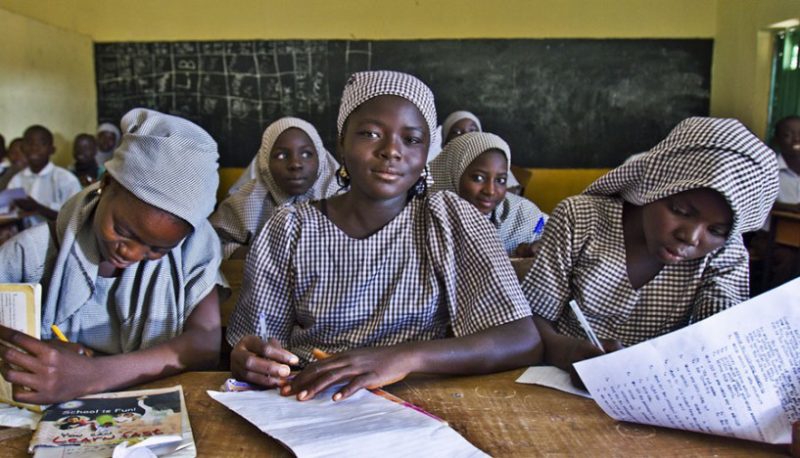The World Bank has approved a $500 million credit for the Adolescent Girls Initiative for Learning and Empowerment (AGILE) towards improving secondary education opportunities among girls in seven states in the Nigeria.

A statement from the bank in Abuja on Wednesday, July 29, 2020 noted that the credit was approved from its International Development Association (IDA) which provides grants to developing countries.
The grants are with low to zero-interest loans for projects and programmes that contribute to economic growth and improve the livelihood of the populace in such nations.
The World Bank said that the project would support access to secondary education and empowerment for adolescent girls in seven states, namely Kano, Kebbi, Kaduna, Katsina, Borno, Plateau and Ekiti.
The AGILE project is expected to use secondary as a platform to empower girls through education, life skills, health education, Gender-Based Violence awareness and prevention, negotiations skills, self-agency and digital literacy skills.
According to the statement, a minimum of six million girls and boys are expected to benefit from the project, and many more students are expected to continue benefiting after the project ends.
Mr Shubham Chaudhuri, World Bank Country Director for Nigeria, said “there is no better investment to accelerate Nigeria’s human capital development than to significantly boost girls’ education.
“The AGILE project will enable Nigeria to make progress in improving access and quality of education for girls, especially in northern Nigeria.
“Addressing the key structural impediments in a comprehensive way will create the enabling environment to help Nigeria ensure better outcomes for girls, which will translate into their ability to contribute to productivity and better economic outcomes for themselves and the country.”
It added that the project would benefit about 6.7 million adolescents and 15.5 million direct project beneficiaries would include families and communities in participating states.
It also said that the project had been adapted to respond to COVID-19 and would support a blended learning approach using technology and media (TV and radio) to implement remote and distance learning programs.
“The AGILE project will expand existing primary and Junior Secondary Schools (JSSs) to include both JSSs and Senior Secondary Schools to make schools functional, safe, and inclusive to teaching and learning.
“This entails building more than 5,500 JSSs and 3,300 classrooms for SSSs, as well as improving 2,786 Junior Secondary and 1,914 Senior Secondary schools with safe, accessible, and inclusive infrastructure.”
Furthermore, it stated that about 340,000 girls would receive life skills training which would incorporate health information and key information on climate change, safety and gender-based violence awareness.
It also said that 300,000 girls would receive digital literacy training to help them thrive in the digital economy adding that the project would offer half a million girls from the “poorest households” with financial incentives.
“(The incentives will be) in the form of scholarships to further support their retention and completion of secondary school.
“It will also support raising awareness to address social norms and promote positive behaviors for a supportive and enabling environment for girls’ education using communication and high-level advocacy.”
By Temitope Ponle
